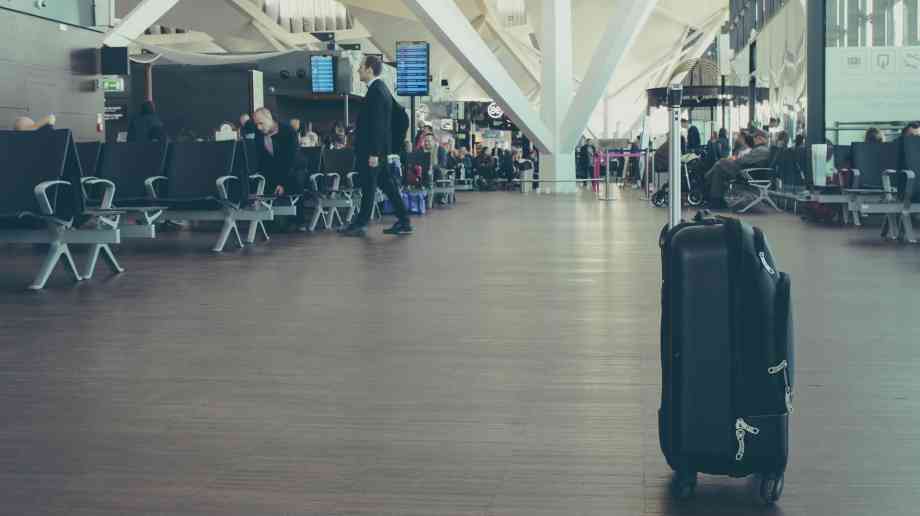Sue Robb of 4Children talks to Julie Laughton and Alison Britton from the Department for Education about the role of childminders in delivering the 30 hours free entitlement.
Border failures in March accelerated pandemic

The Home Affairs Committee has claimed that the coronavirus pandemic in the UK was accelerated in the early months by critical errors in the government's approach to border measures.
The group of cross party MPs concluded that the UK's experience of coronavirus has been far worse as a result of the government's decision not to require quarantine during March, which would have reduced the number of imported infections. In its report, the committee is particularly critical of the government's decision on 13 March to remove all self-isolation guidance for travellers arriving in the UK at a time when other comparable countries were strengthening their border measures. This was also the same time as when hundreds of new coronavirus cases were arriving every day – particularly from Spain, Italy and France, including many British residents returning home.
According to MPs, there was no scientific evidence to justify this ‘inexplicable decision’, and says that the failure to have any special border measures in place in mid March was a serious error. It also found that the decision not to include Spain in the earlier country specific measures in late February was a mistake as doing so could have slowed the virus spread.
The report welcomes the introduction of border measures this summer, supports the development of travel corridors and the application of quarantine requirements for arrivals from Spain given the current rising number of infections there. It calls for publication of the Joint Biosecurity Centre's traffic light assessment of different countries so that people can better judge the risk before travelling.
Yvette Cooper, chair of the committee, said: "The government's failure to have proper quarantine measures in place in March as the infection was spreading fast was a grave error and meant Covid spread faster and reached more people. The UK was almost unique in having no border checks or quarantine arrangements at that time. That alone should have rung loud alarm bells for Ministers and made them think again.
“Many times Ministers told us they were following the science, but we cannot find any science at all behind their completely inexplicable decision to lift all the self isolation guidance for travellers on 13 March a full ten days before lockdown, just at a time when other countries were introducing stronger border measures. We were told that thousands more people with Covid-19 came back to the UK after that guidance was lifted. So in the middle of March, at a time when the number of people with Covid coming back into the UK was at its peak, they were going back to work or onto public transport or seeing family without any quarantine in place.
“In an unprecedented public health crisis, the government inevitably faces very difficult decisions. But they would be much more effective with greater transparency and trust. Publishing the science and evidence behind their decisions would mean they benefit both from greater scrutiny and debate to get those decisions right, and also from greater trust, understanding and support."
The inquiry considered all of the government's decisions on border measures – from the early quarantine of 273 people largely from Wuhan, through the voluntary self-isolation measures applied to travellers from specific countries (including China, Iran and Italy) in February and early March followed by the lifting of all border measures on 13 March, to the introduction of mandatory quarantine in June, followed by travel corridors and the most recent decision to reintroduce quarantine for Spain.
Company Focus
The Isuzu D-Max is a rugged workhorse that can fulfil a myriad of purposes as both a business and personal vehicle. Consequently, the D-Max is a particularly popular choice when it comes to farming, construction, and trade industries. Uncompromising in nature, the D-Max strives to be the ideal companion for many business needs.
Event Diary
UKREiiF has quickly become a must-attend in the industry calendar for Government departments and local authorities.
The multi-award-winning UK Construction Week (UKCW), is the UK’s biggest trade event for the built environment that connects the whole supply chain to be the catalyst for growth and positive change in the industry.
Supplier Profiles
Geo Energy
At GeoEnergy Design, we're on a mission to disrupt the traditional way heating and cooling ha
Latest Features
Professor Harith Alani, director of the Knowledge Management Institute at the Open University explains how AI can be used for good and bad.
Alex Lawrence, head of health & social care, techUK sets out techUK’s Five Point Plan for CareTech.

















